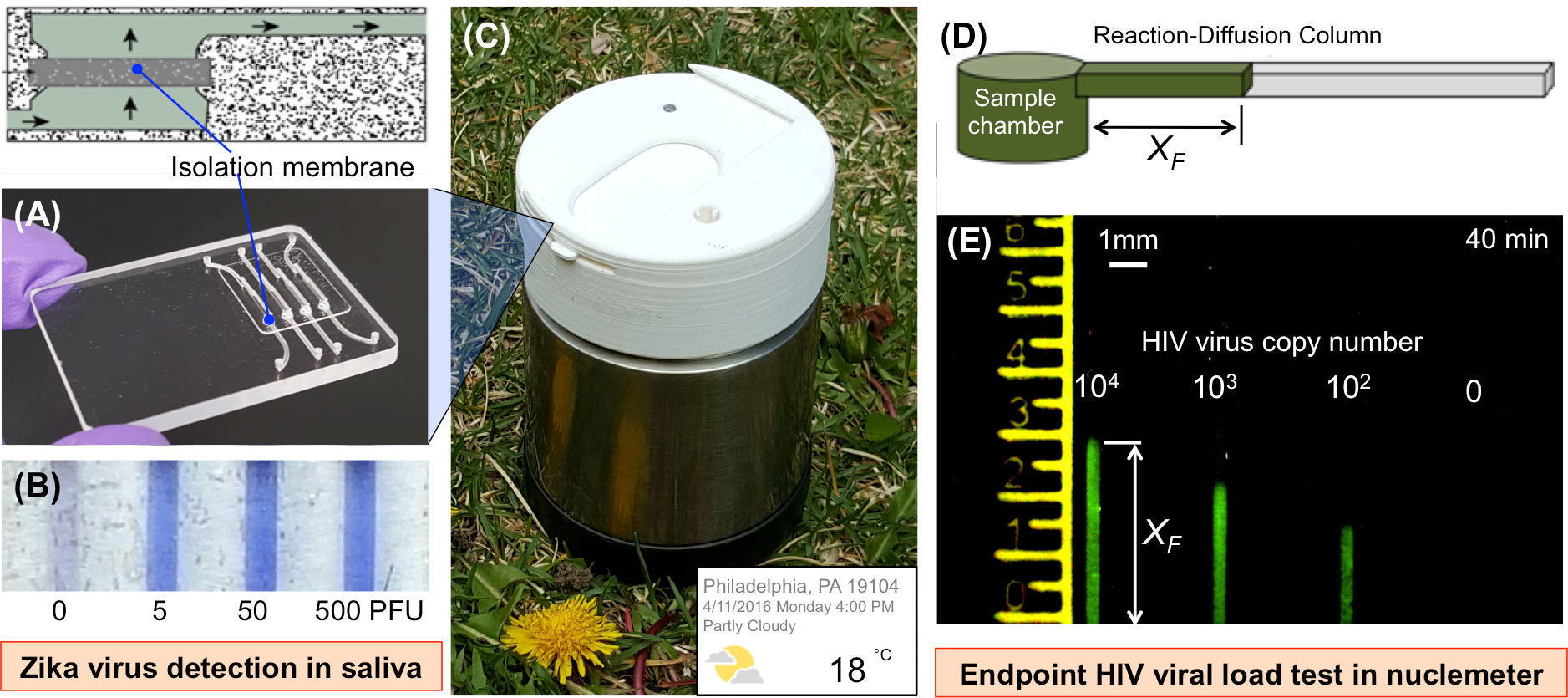
Rapid and timely molecular diagnosis of disease, including infectious disease and cancer, is critical for prompt and appropriate therapeutic intervention. However, current nucleic acid-based molecular diagnostics is still limited to laboratory use and not available for point of care (POC) diagnostic applications due to its requirement of expensive instrument and highly trained personnel. We have invented a number of novel POC diagnostic devices (Fig. A-E) for detecting HIV virus in saliva and plasma, zika virus (ZIKV) in saliva and urine, Cell-free circulating Schistosome mansoni DNA in serum, E. coli in urine and stool, and other diagnostic applications. We are employing multidisciplinary approaches to develop next-generation, low-cost, POC, molecular diagnostic devices for global health care and for individualized or customized medicine. For example, we are developing a new, reaction-diffusion-based, microfluidic method (dubbed “nuclemeter”) for quantifying nucleic acid molecules (Fig. D). The amount of target nucleic acid in raw clinical samples can be quantitatively read out through the position of polymerization reaction-diffusion front (XF) in the nuclemeter at the endpoint, enabling molecular diagnostics as simply as reading temperature in a “mercury in glass” thermometer (Fig. D and E).